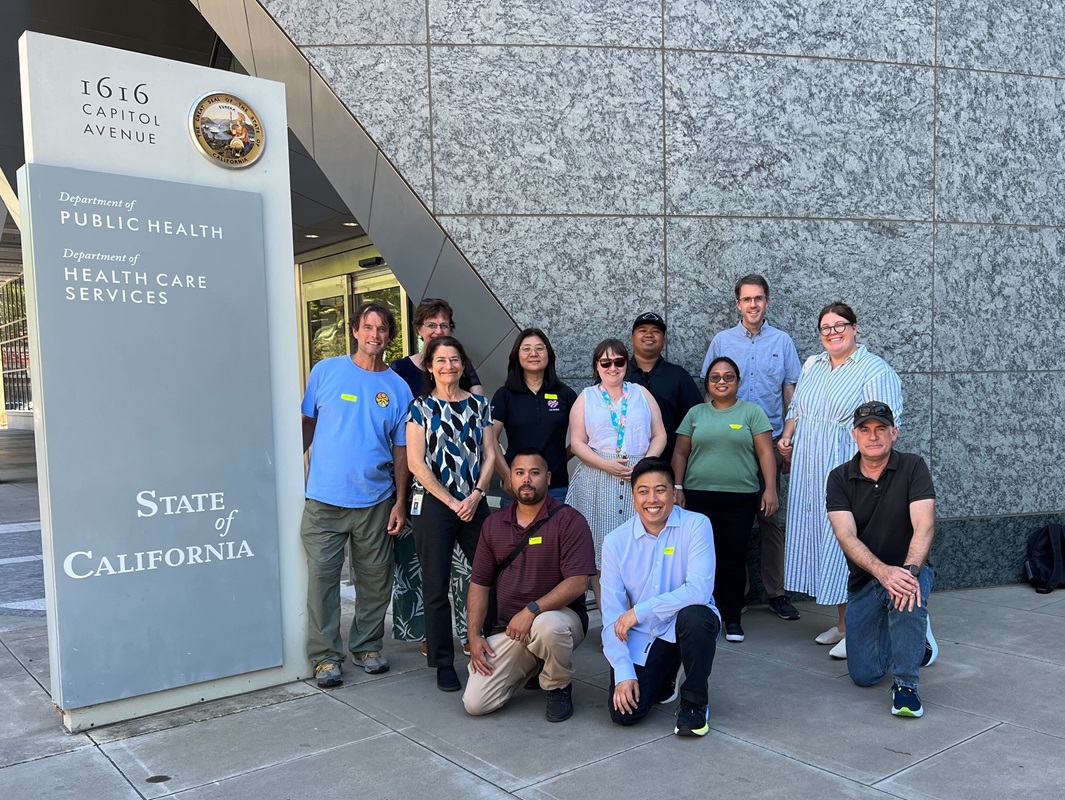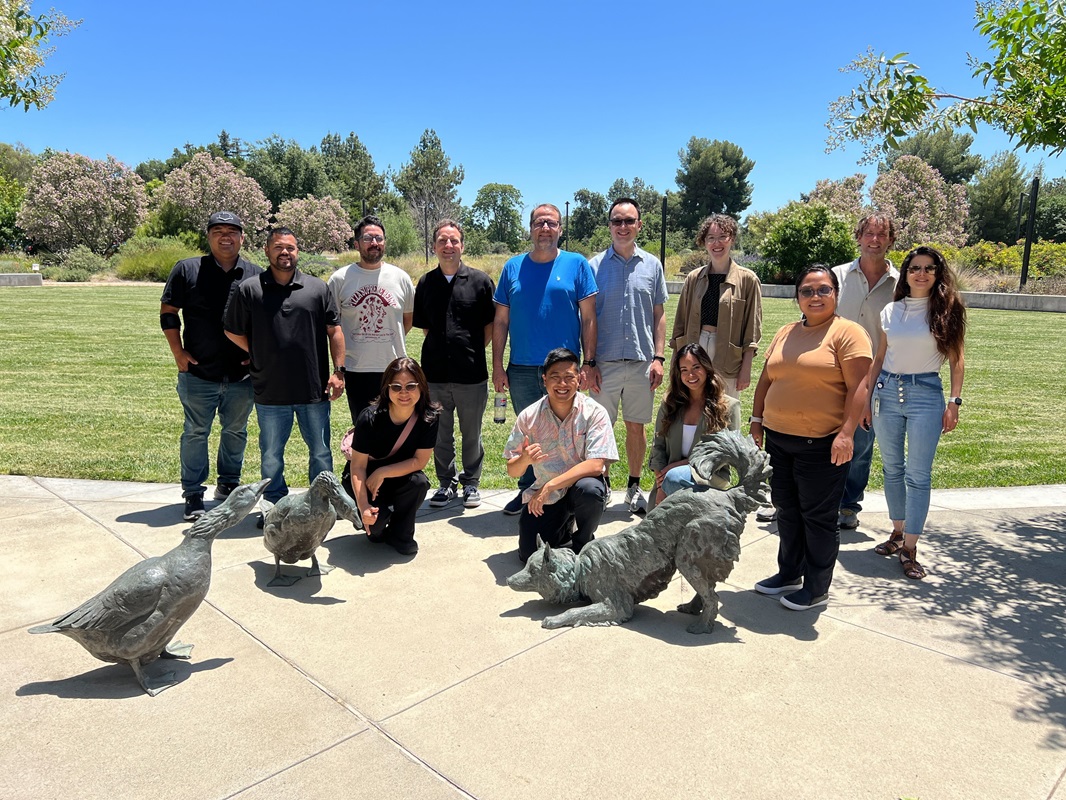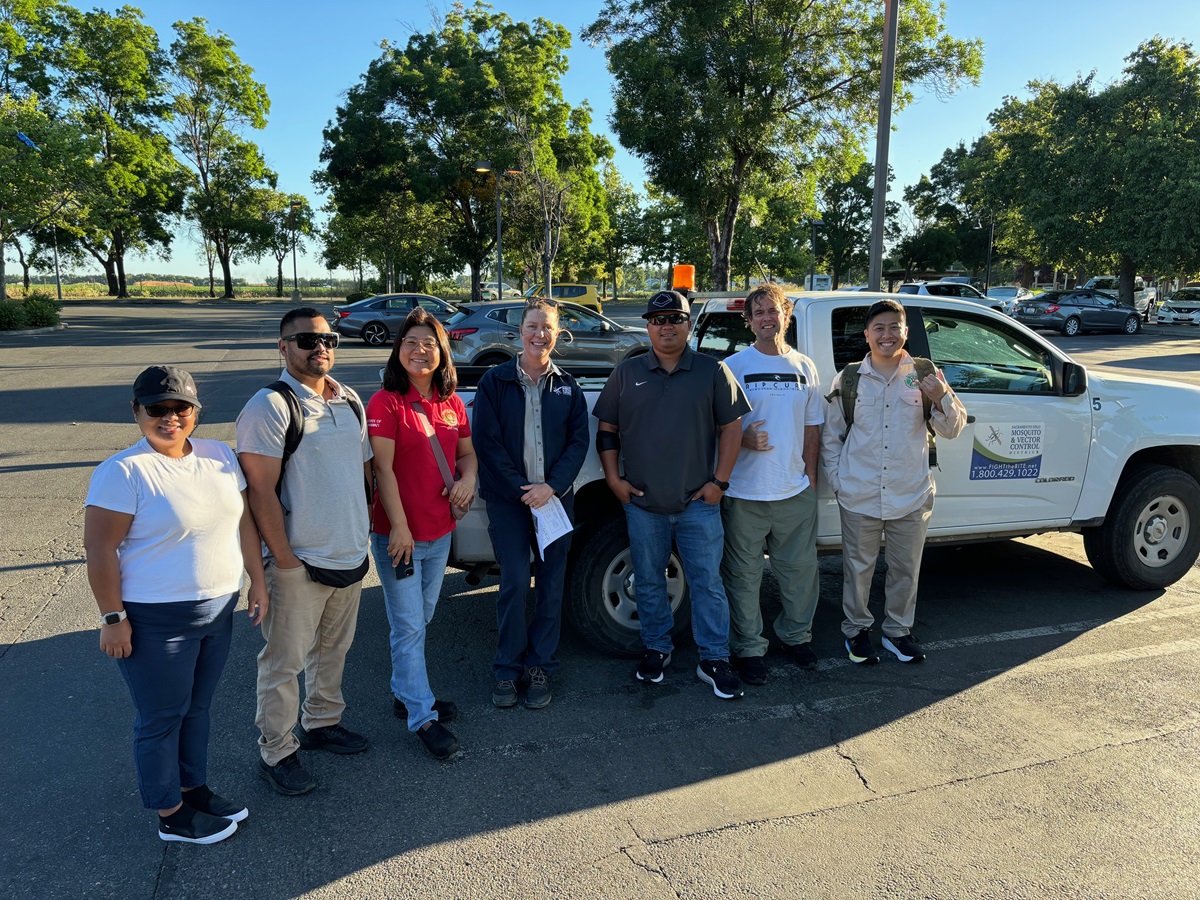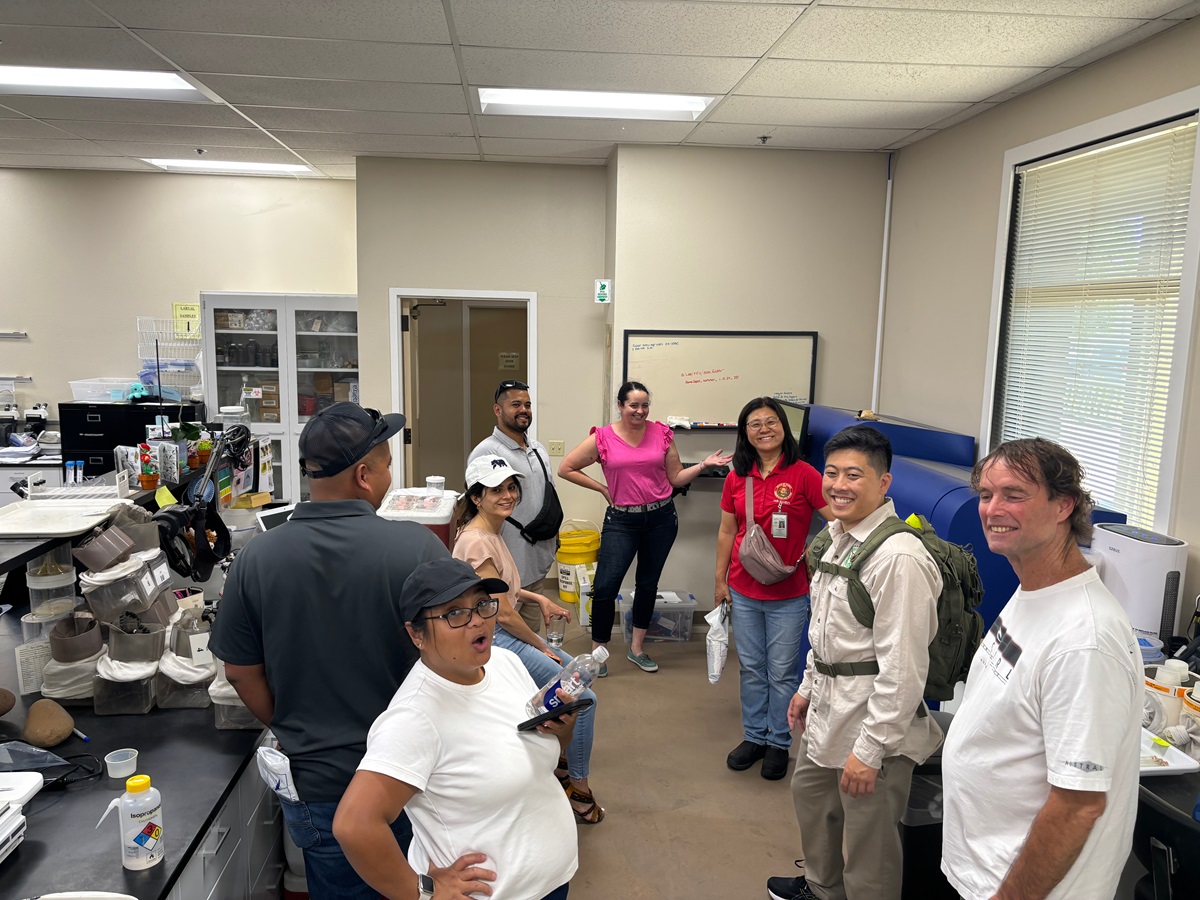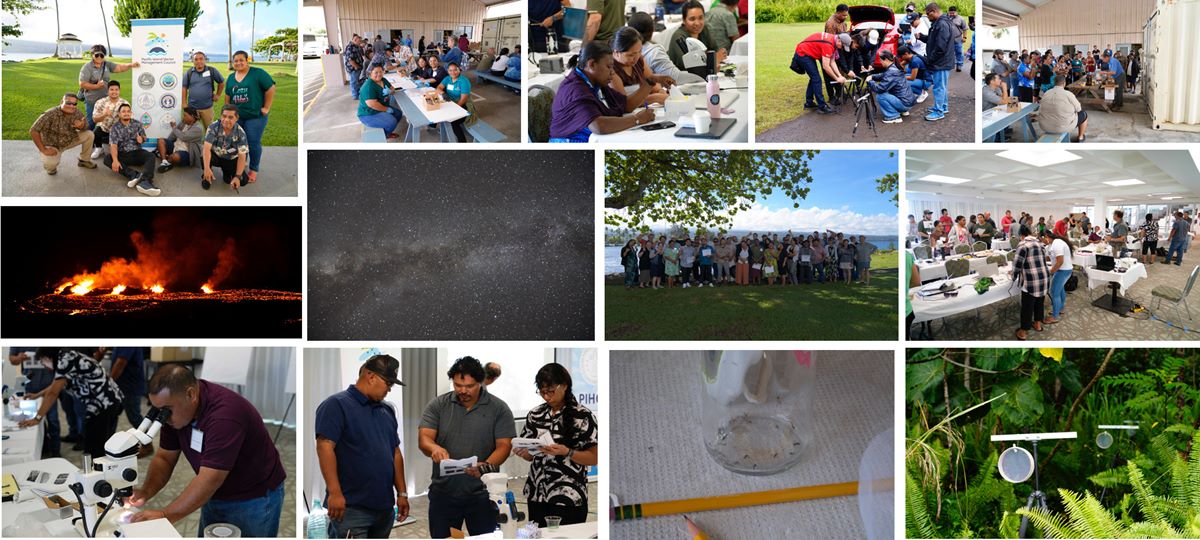PACVEC IN ACTION
Vector surveillance and control with Dr. Geoff Attardo and Dr. Olivia Winoku
Students at UC Davis are gaining hands-on experience in vector surveillance and control this quarter in a course taught by Dr. Geoff Attardo and Dr. Olivia Winokur. Last week, students went into the field to sample mosquitoes with Dr. Sarah Wheeler and Dr. Mario Novelo Canto of the Sacramento-Yolo Mosquito Mosquito and Vector Control District. Next, they’ll learn how to identify what they caught, and how to make data-driven control decisions.
2024 HAWAI’I STATE DEPARTMENT OF HEALTH’S VECTOR CONTROL BRANCH VISITS CALIFORNIA
2023 PACIFIC VECTOR CONTROL AND OUTBREAK RESPONSE TRAINING
2022 PACVEC TRAINING FOR THE USAPIS
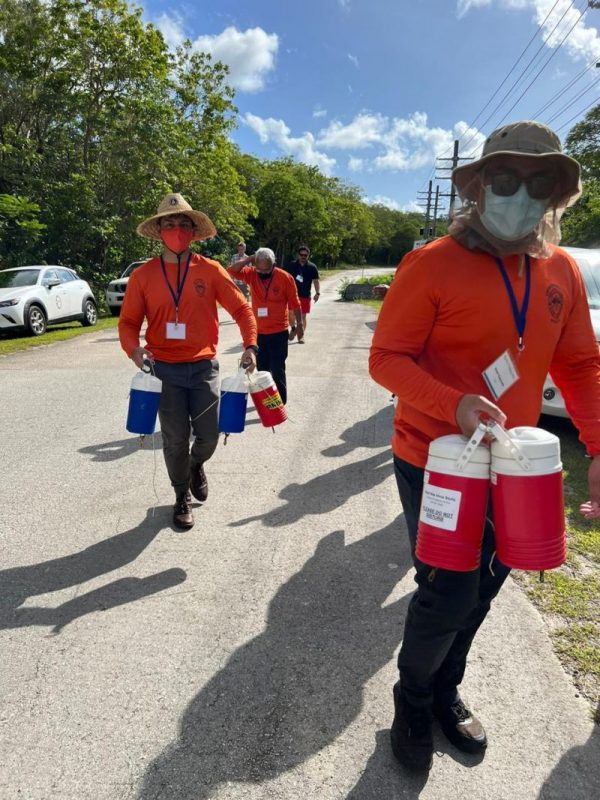
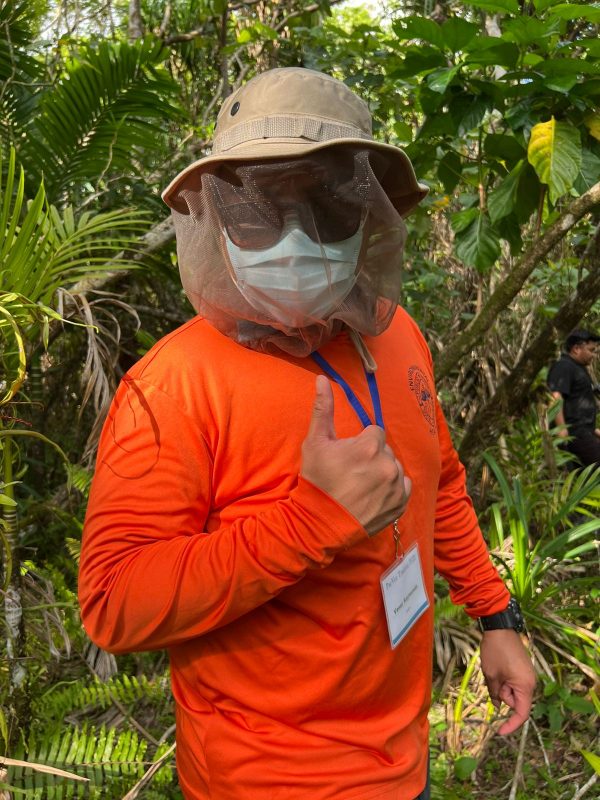
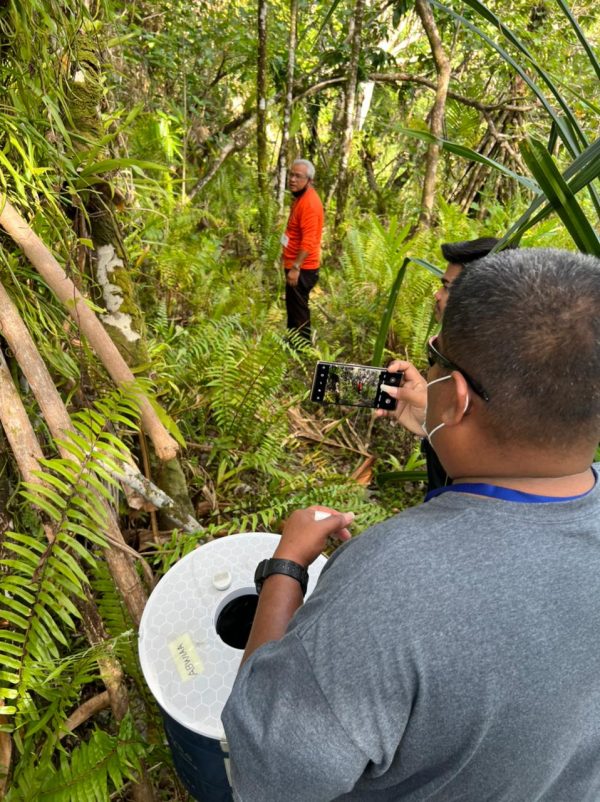
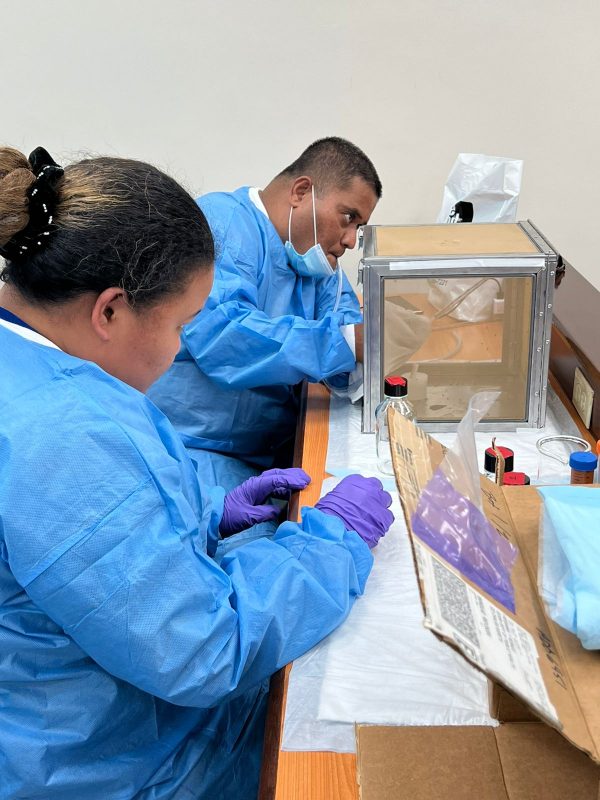
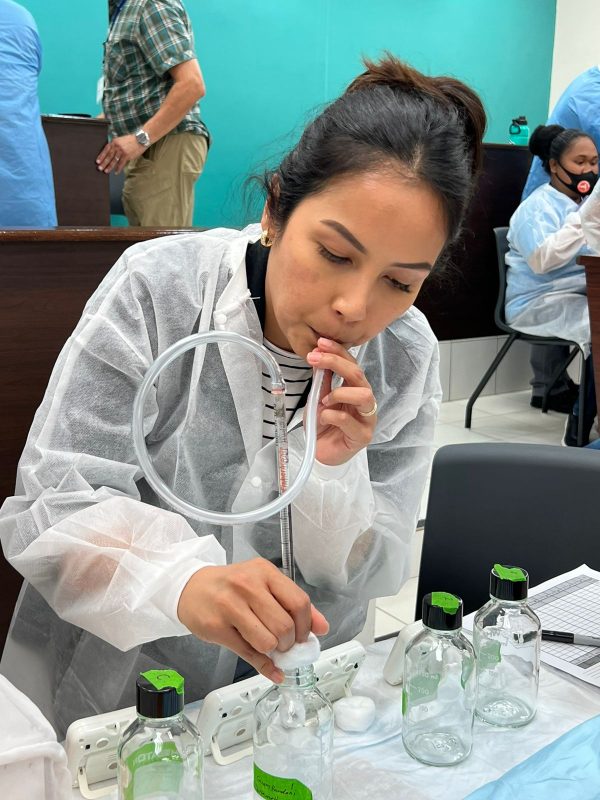
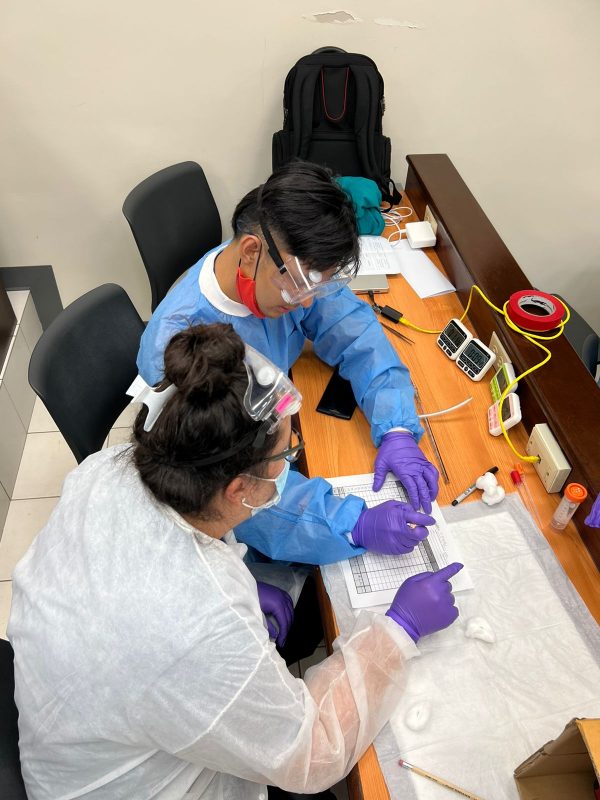
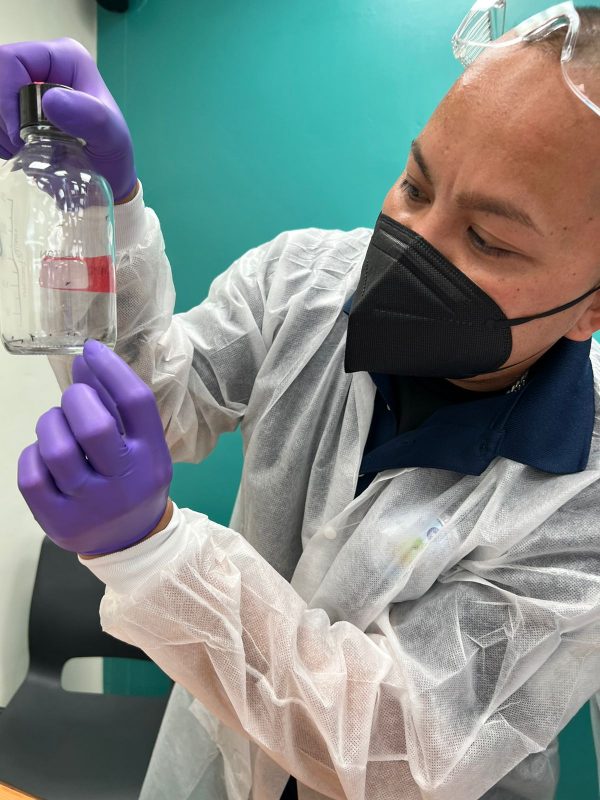
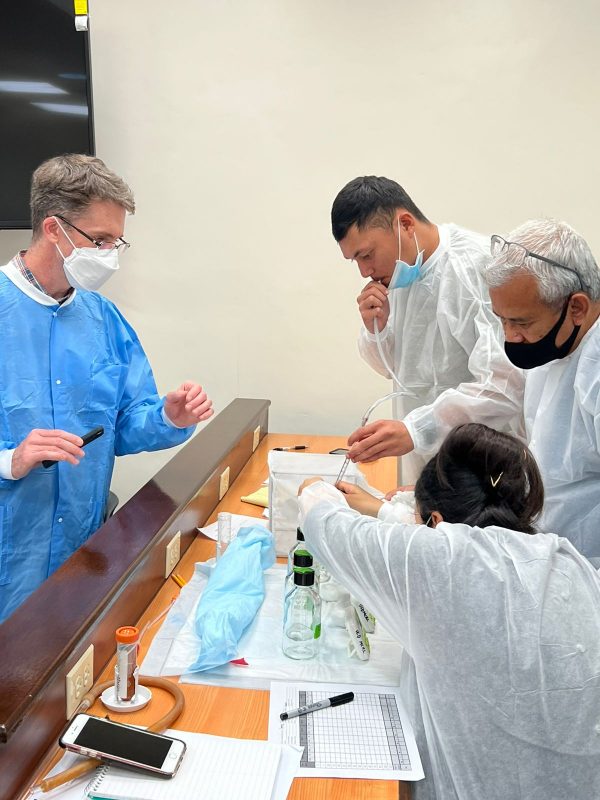
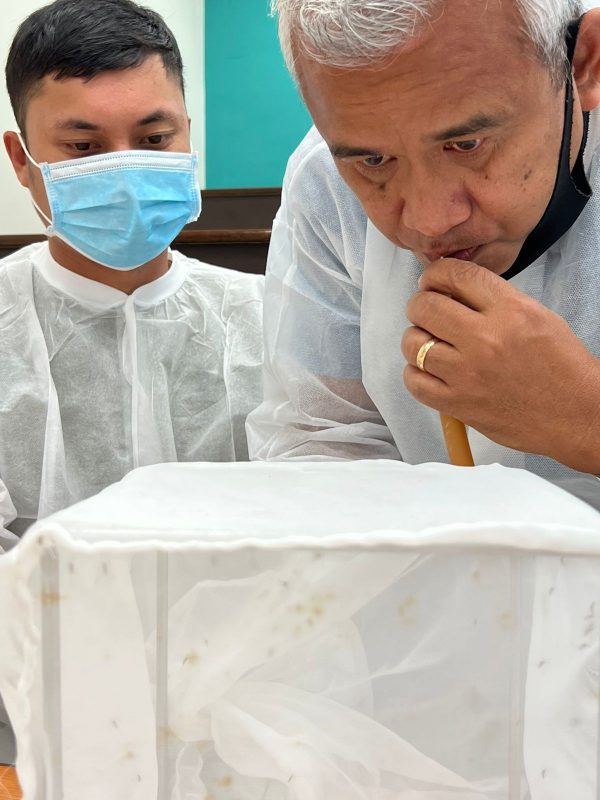
The Pacific Vector Training on Mosquitoes for the U.S. Affiliated Pacific Islands (USAPIs) of Guam, the Commonwealth of the Northern Mariana Islands (CNMI), and the Republic of Palau was a week-long training between May 2nd and May 6th, 2022 at the Pacific Island Regional Vector Laboratory (PIRVeL) located at the Guam Department of Public Health and Social Services, Division of Environmental Health (DPHSS-DEH) in Guam.
Representatives from PacVec, the University of California, Davis, Walter Reed Biosystematics Unit (WRBU), and the Pacific Island Health Officers’ Association (PIHOA) conducted the training that was attended by 23 vector control supervisors and staff from the Guam DPHSS-DEH, CNMI Commonwealth Healthcare Corporation’s Bureau of Environmental Health, and the Republic of Palau Ministry of Health and Human Services, Division of Environmental Health.
PACVEC TRAINING 2022
PACVEC IN ACTION
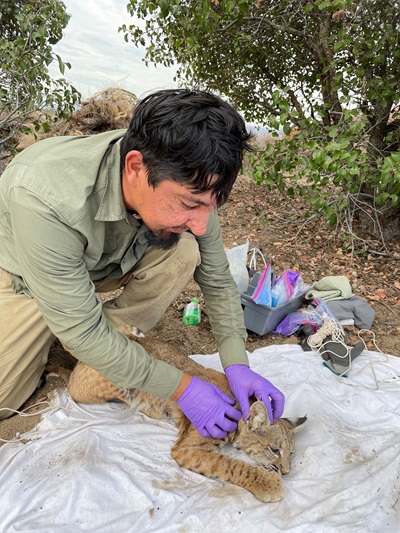
Dr. Andrés M López-Pérez and a team of three students trapping and collecting fleas and ticks from wild carnivores (coyotes and bobcats) in Baja California, Mexico during the summer of 2021. The study aimed to better understand the ecology of tick and flea-borne diseases across the western US-Mexico border and whether wild carnivores could participate in the transmission of vectors and pathogens.
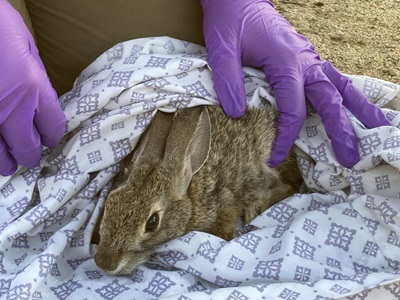
Dr. Laura Backus and other members of the Foley lab trapping lagomorphs (rabbits and hares) in Baja California, Mexico during the summer of 2021. They collected ectoparasites from them, and did testing for rickettsial pathogens.

The UC Davis and Madera County Mosquito and Vector Control District team beginning field work to study Aedes aegypti resting behavior and diel activity in Madera, California.
Pictured (top row left to right): Teresa Hamilton (Madera County MVCD), Gabriela Novo de Oliveira, Olivia Winokur, Malak Saleh, Christopher Barker (UC Davis Barker lab), Trinidad Reyes (Madera County MVCD); (bottom row left to right): Istvan Menyhay, Sarah Abusaa (UC Davis Barker lab).
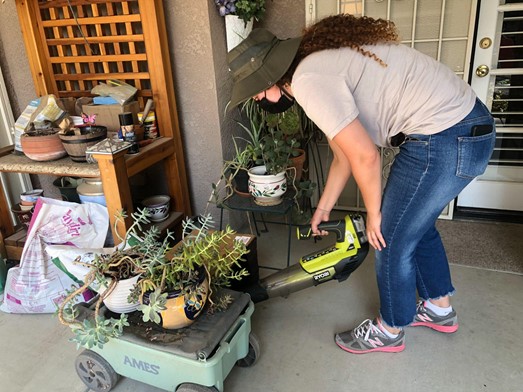
UC Davis undergraduate student Malak Saleh aspirating a resting box as part of a study to understand microhabitat availability and thermal preferences of Aedes aegypti mosquitoes in the central valley of California (study led by UC Davis PhD candidate Olivia Winokur).
The Pacific Southwest Regional Center of Excellence in Vector-Borne Diseases is supported through Cooperative Agreement Number 1U01CK000649 between the Centers for Disease Control and Prevention (CDC) and the University of California, Davis.
© 2024 – All rights reserved


